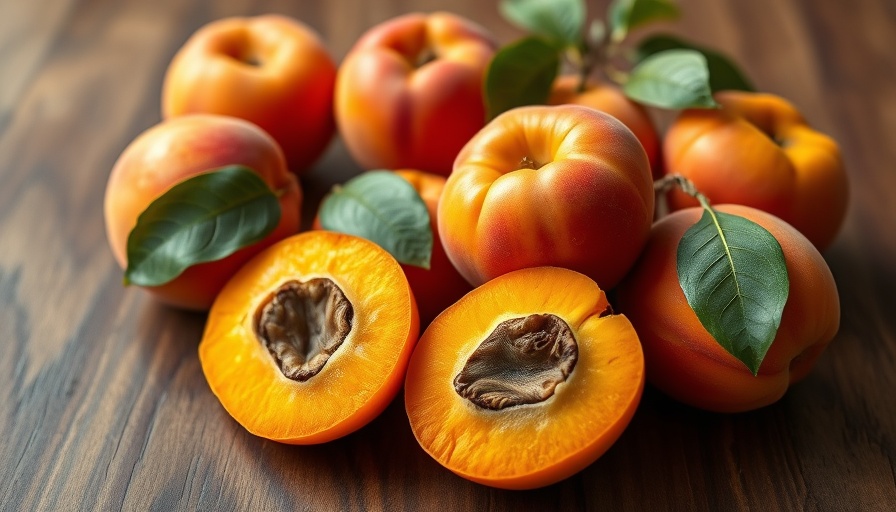
Can Apricots Really Boost Your Pet's Health?
In the quest for healthier diets for our beloved pets, many pet owners are curious about whether adding new foods like apricots could contribute to a better overall wellness strategy. Known for their delicious blend of sweetness and slight tartness, apricots pack a nutritional punch that could enrich your dog or cat's meals. But how can these fruits benefit our furry friends?
The Nutritional Powerhouse of Apricots
Apricots (Prunus armeniaca) are small, sweet fruits that belong to the Rosaceae family. They are often celebrated not just for their flavor but also for their rich content of antioxidants, such as polyphenols and carotenoids. These compounds are known for their ability to combat oxidative stress and chronic diseases—benefiting both humans and pets alike.
A study highlighted that flavonoids and phenolic acids in apricots can assist in warding off chronic conditions. By incorporating apricots into your pet's diet, you're not just providing them with a treat; you're potentially enhancing their cellular health!
Safe Preparation: A Guide for Pet Owners
Before adding apricots to your pet's menu, it's essential to prepare them correctly. Always remove the pit to prevent choking hazards, as the pits contain cyanogenic compounds which can be harmful if ingested. Dice the fruit into small, manageable pieces, making it easier for your pet to chew and enjoy without the risk of choking.
Whether used as a meal topper or a training treat, apricots can be a delightful addition to your pet's diet. However, remember that not all pets will be eager to delve into fruits, given their carnivorous nature. Introducing apricots slowly can help gauge whether your dog or cat will enjoy them.
Sharing Apricots: A Nutritional Treat for Your Pets
What many pet owners find surprising is that while dogs and cats primarily thrive on animal-based diets, fruits like apricots can provide valuable dietary fiber and nutrients. The fiber content is crucial for a balanced diet, helping in digestion while also ensuring that pets are hydrated.
Guess what? Apricots can also serve versatile purposes! You can mix chopped apricots into meals or use them as healthy training rewards instead of typical, processed treats high in sugar and artificial ingredients.
Tracking Your Pet's Response
Every pet is unique! As you introduce apricots into their diet, keep an eye on their reactions. Look for signs of allergies, discomfort, or shifts in digestion. If your dog or cat shows an adverse reaction, discontinue the fruit and consult your veterinarian.
In contrast, positive reactions—like excitement during mealtime—may signify that apricots can be a regular part of their dietary routine.
The Importance of Balanced Nutrition for Dogs and Cats
It’s crucial to remember that fruits, including apricots, should only complement the mainstay of your pet's diet—high-quality protein. While offering these fruits can be a fun way to diversify their meals, they should never replace essential nutrients dogs and cats obtain from meat and specialized pet food.
Incorporating a variety of fruits and vegetables into your pet's diet in moderation can be beneficial and enjoyable. And as always, consulting with your veterinarian can provide tailored advice suited to your pet’s individual health needs.
In Conclusion: A Delicious Way to Enhance Your Pet's Meals
As you consider different ways to nourish your furry companions, remember that feeding them apricots can be both a treat and a health benefit. By keeping portion sizes in check and ensuring these fruits are prepared safely, you can enhance your pet's diet and promote their overall wellness.
Why not give your pets the joy of a sweet apricot treat today? After all, a happy pet is a healthy pet!
 Add Row
Add Row  Add
Add 




Write A Comment